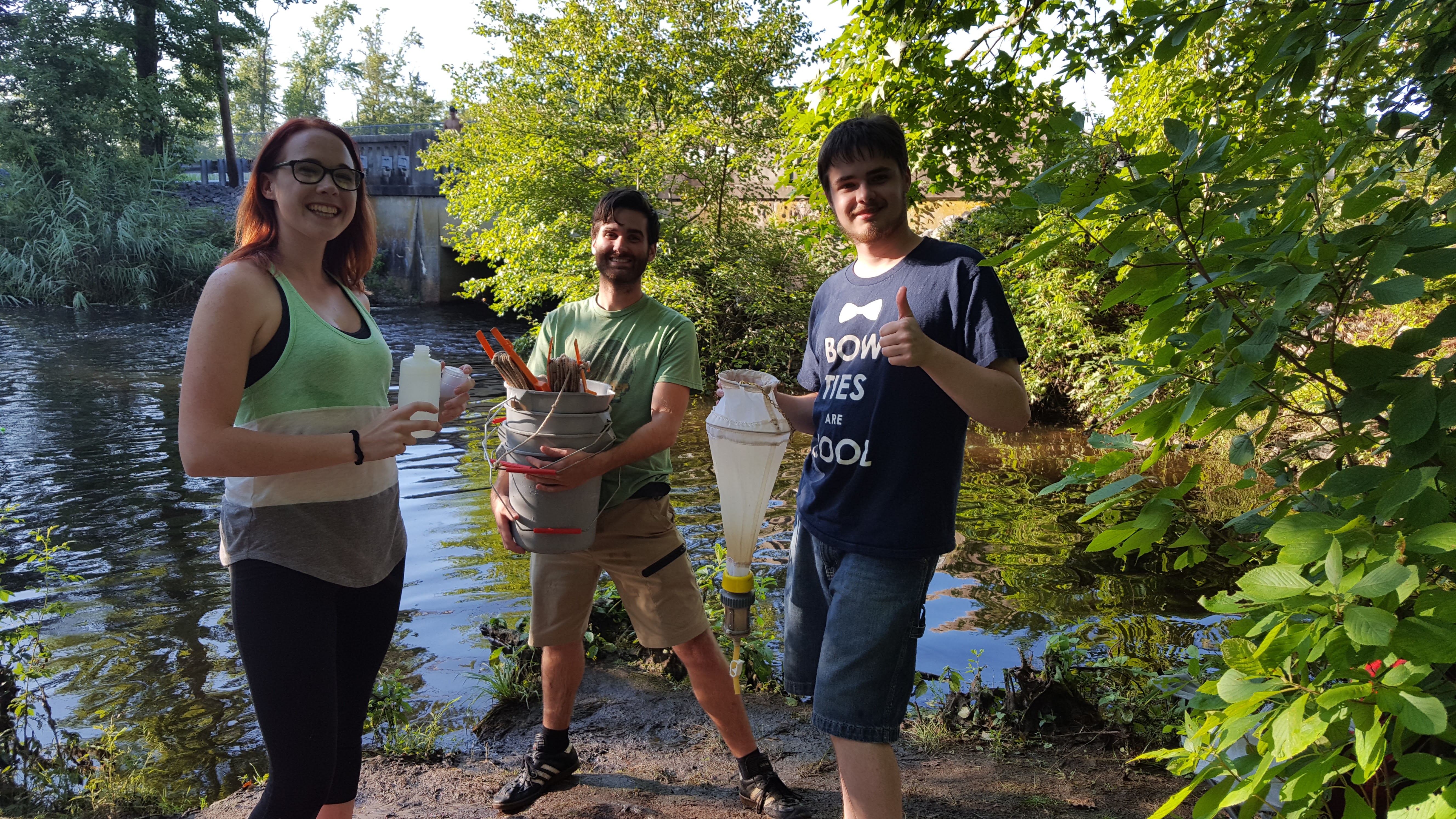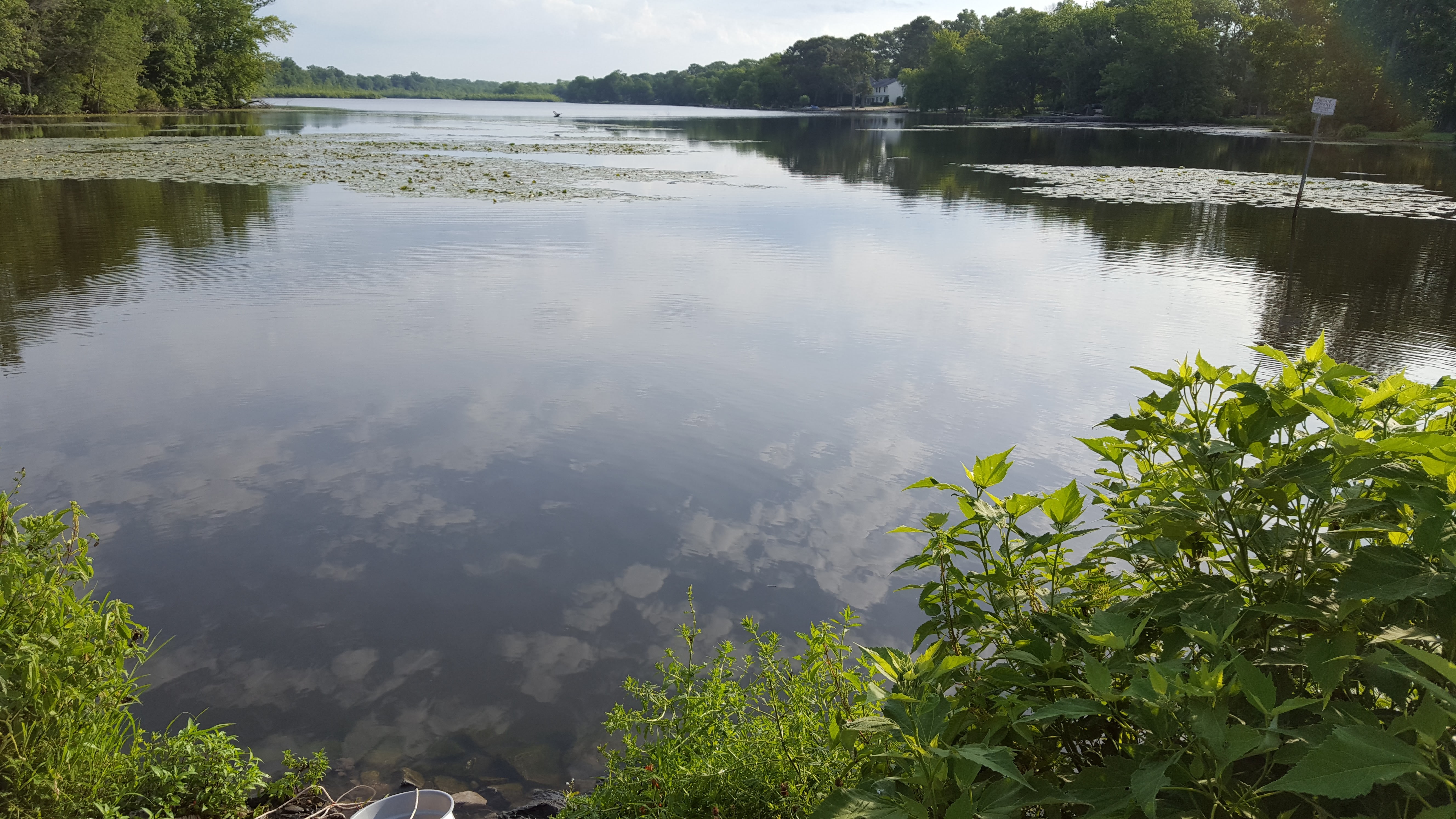
Ecological Diversity Group

The
Ecological
Diversity Group or “EDGe Lab” is a collaborative project led
by Biological Sciences faculty members Dr. Michael Grove, Dr.
Courtney Richmond, and Dr. Nathan Ruhl. The primary mission
of the EDGe Lab is to promote professional development of
undergraduate students seeking research-oriented careers. We accomplish this
goal via engaging students in all aspects of real biological
research, from study design to publication.
What would I do in the EDGe
Lab?
Students
in
the EDGe Lab are typically peer-mentored during their first
spring semester, participate in guided studies in the field
and lab during the summer, partner with faculty to analyze
data and test hypotheses during the fall semester, and
create/deliver poster/podium presentations during their second
spring semester.
What do I get from the EDGe
Lab?
Students
in
the EDGe lab gain research skills that are tailored to their
career goals whenever possible, develop a close relationship
with a small group of peers and faculty, often earn
course-credit, and sometimes earn a pay-check.
Student
Testimonials:
Jessie
Torrey (B.S. Biology, May 2020): Being a part of the
EDGe lab has helped me improve my scientific writing skills,
which will be vital in my career to come. Dr. Ruhl, Dr.
Richmond, and Dr. Grove encourage me to take the lead when it
comes to my work, but are always supportive every step of the
way.
Pranav
Patel
(B.S. Biology, Dec. 2019): From microscopy to academic poster
creation, the broad range of skills the EDGe Lab have taught
me are an invaluable foundation for anyone hoping to pursue a
career in research. Currently as I look for jobs during my
off-year, the skills and demands that many biology careers
require have all been taught to me through my time as a member
of the EDGe Lab. Additionally, the EDGe Lab is conducive
towards becoming invested into the research and taking an
active role in its projects. This makes for an amazing
learning experience, and something you cannot find in a normal
college class.
Bailey
Sanders (B.S. Biology, May 2020): Drs. Grove, Richmond,
and Ruhl provide a unique support system that I wouldn't trade
for the world. If you're interested in applying for graduate
school, this lab provides you with a healthy dose of both
field and lab work, introducing you to aquatic equipment,
techniques, and honing in microscopy skills through
zooplankton identification. That being said, be prepared to
work independently as well, as you will be assigned to
projects with fellow lab mates that offer you a chance to make
posters and in some cases, get published. The EDGe Lab has
added so much to my academic career, and I wouldn't be where I
am today, currently interviewing with graduate programs, if it
weren't for this opportunity. Being in this lab has helped me
recognize a passion for research, and if you are unsure of
what direction you want to go in, I highly recommend
considering the EDGe Lab as an option to broaden your
knowledge and experience in an interesting and relevant field.
Caitlyn
Czajkowski (B.S. Biology, May 2018): I think some of the
most important skills I got from the lab was exposure to field
work/collecting samples and recording data in the
field….Learning about zooplankton and how to use a zooplankton
net was also something that was very useful for me! Also
poster making was an ESSENTIAL skill that I would not have
learned without the lab! I’ve ended up having to make/edit
posters for scientists at the lab I work at and having the
previous experience making them really helped me. Along with
everything that goes into paper/report writing; which is
something I assist with regularly at my lab and am glad I had
the experience of researching, gathering sources and science
writing. Learning to work with everyone else in the lab was
also a key skill that is and will always be a really important
ability! The time I spent at the Ruhl lab was invaluable when
it came to setting the foundations for skills I continue to
build on and use on a daily basis in my career!
Who does research with the
EDGe Lab?
Students
usually
enter the lab as second-semester Sophomores or Juniors but we
also consider second semester Freshmen. The students that
get the most out of their experience with the EDGe lab are
those that desire a career in ecological or environmental
research (either as a lab/field technician or thesis-based
graduate school) but many lab members are planning research
careers in other areas of biology/science or are
clinical-track.
What are we studying in the
EDGe Lab?
A
major area of study in the EDGe lab is understanding the
ecological processes governing seasonal change in the plankton
(zooplankton and cyanobacteria) within human-created
polymictic reservoirs. Another
area of focus is how ecosystem function and
reservoir-management strategies interact to modify resource
availability in streams.
We are also active in the development of tools for
teaching ecology and environmental science.
Recent publications from
the EDGe Lab
(undergraduate author in bold):
-
Spicer RL, Lugo A, and Ruhl N. In Review. Landform type
mediates succession in a hurricane-damaged forest. 
-
Ruhl N
and Pimenta S. In Press. Are Humans Natural?
Exploring human-nature relational values over time. Rowan Digital Works: Open
Educational Resources
- Ruhl N and Dobson T. 2019. Are Humans Natural?
Nature relatedness and the American Dream. Rowan Digital Works:
Open Educational Resources, 15.
https://rdw.rowan.edu/oer/15
-
Ruhl N,
Haban D, Czajkowski C,
Grove M, and Richmond C.
2019. Community composition of zooplankton exported
from a shallow polymictic reservoir linked to wind conditions. PeerJ, 7:e7611. DOI: 10.7717/peerj.7611
-
Ruhl N
and Sullivan N. 2017. Disturbance-mediated
cHAB formation in a small Ohio reservoir. Lakes and Reservoirs:
Research and Management, 22:2, 161-167. DOI: 10.1111/lre.12172